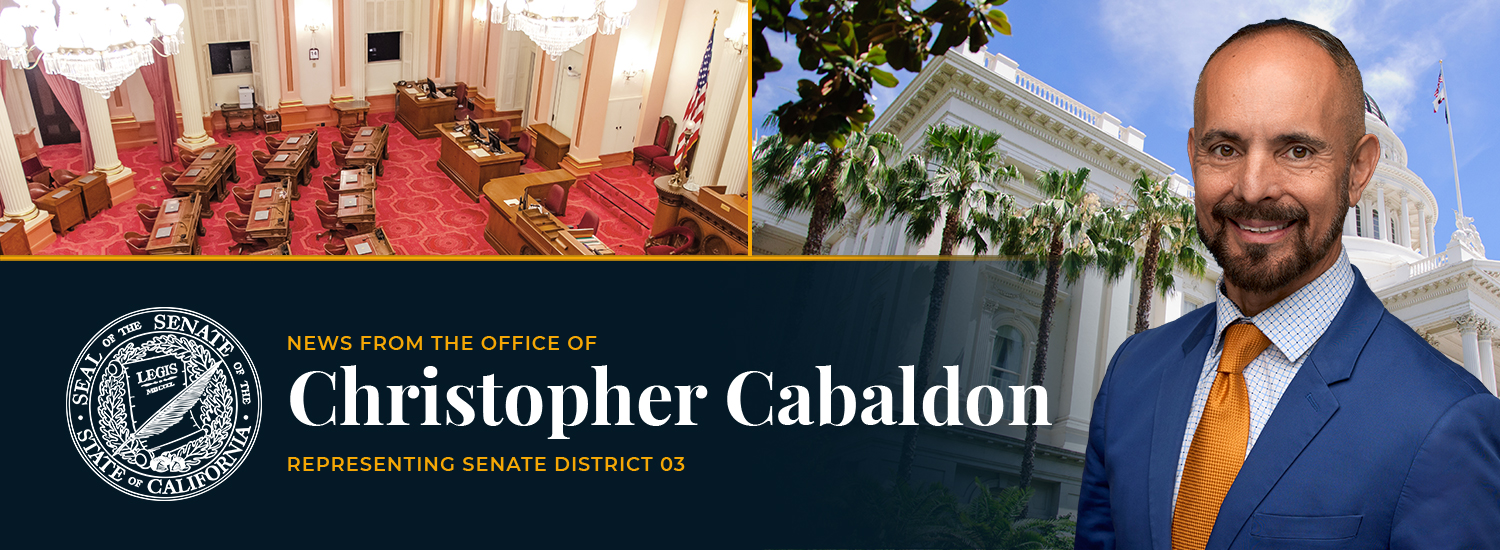
Senator Cabaldon bill keeps private equity investors out of medical decisions
SACRAMENTO--Legislation by Senator Christopher Cabaldon (D-Yolo) to prevent private equity firms from interfering in doctors’ medical care of patients passed the Legislature with overwhelming bipartisan support this week and now heads to the Governor’s desk.
Senate Bill 351 strengthens the state’s current ban on the Corporate Practice of Medicine by granting the California Attorney General authority to take legal action against private equity groups and hedge funds that interfere with or exert control over the health care decisions of doctors and dentists working for medical practices in which they invest.
“Private equity investment in health care practices has quintupled over the past decade,” said Senator Cabaldon. “That kind of growth demands modern enforcement tools, not to restrict investment, but to make sure it doesn’t hurt patient outcomes or drive up the cost of care.”
The bill also voids non-compete clauses that restrict a doctor or dentist from practicing or speaking out about concerns if they resign or are terminated from a practice controlled by a private equity investor.
As the bill made its way through the legislative committee process, doctors told stories about how private equity investors had tried to squeeze patient care to maximize profits.
Dr. Steven Abelowitz, a pediatrician from Orange County, brought in private equity investors to help his large medical practice weather the Covid-19 pandemic. At the time, the new investors agreed they would stick to administrative duties and stay out of patient care. But that quickly changed.
“They began interfering with clinical decisions in the pursuit of profits that were compromising the care of my young patients,” Doctor Abelowitz said. “Their actions included limiting access and time for patients needing ongoing care, particularly for mental health; cancelling COVID vaccine clinics during the pandemic; coercing physicians to prescribe a specific brand or formula they had financial ties to, regardless of the infant's nutritional needs; making hiring decisions favoring less competent and less costly medical staff for profits; [And] attempting to dictate which medical equipment should be used for delivering care and treatment.”
Nationally, private equity acquisition of physician practices soared six-fold between 2012 and 2022, according to researchers at the University of California, Berkeley. Private equity is the fastest growing segment of healthcare acquisitions in the county and California. Because of its short-term investment focus, the average holding time for medical and dental practices has dropped to less than two years.
SB 351 is sponsored by the California Medical Association and the California Dental Association. It also has the support of over a dozen organizations, including California Attorney General Rob Bonta.
“Private equity firms are increasingly acquiring medical and dental practices across the country, including in California. In the process, they are often putting profits above patients,” Bonta said. “I’m grateful for Senator Cabaldon’s leadership on SB 351, which would give my office additional tools to hold private equity firms accountable for interfering in the patient-physician relationship. Medical decisions should be based on what’s best for the patient — full stop.”
#######